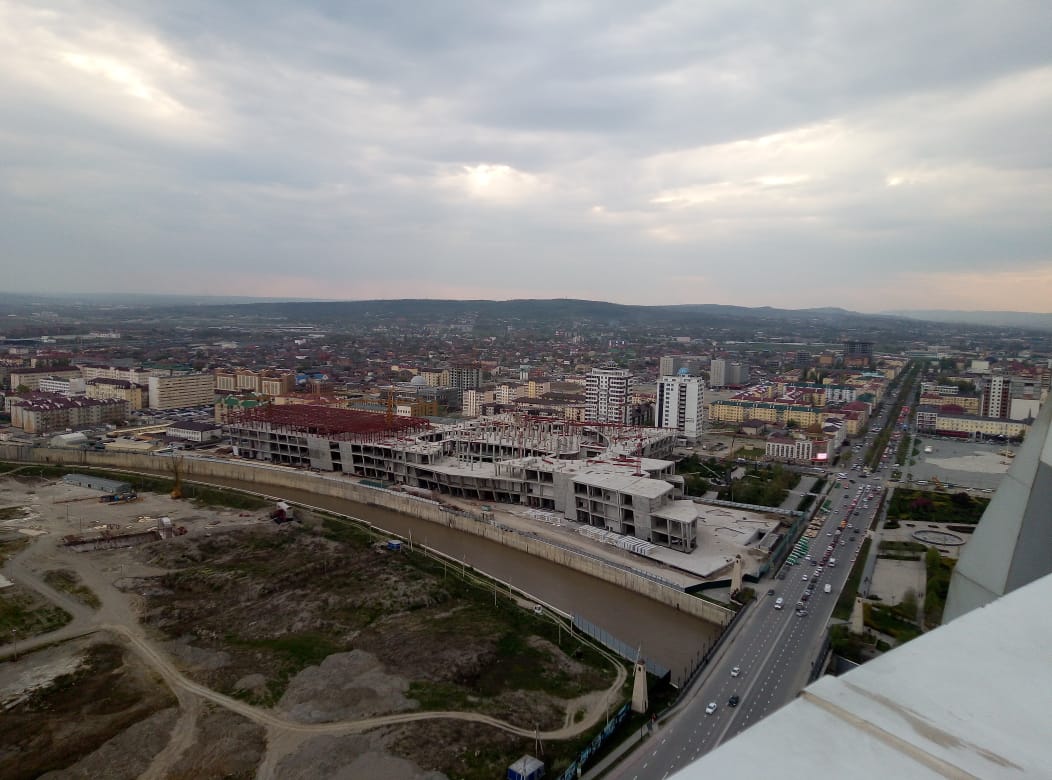
The head of the Russian Republic of Chechnya, Ramzan Kadyrov, has caused anger among Israel’s Russian community, after making an anti-Semitic statement.
Kadyrov made the comments while addressing Chechens living in Jordan, who had been invited by the Chechen Government on a cultural visit to the Chechen capital, Grozny.
In his hour-and-a-half speech on 13 August, Kadyrov said that ‘the prophet Muhammad killed the Jews most of all’. He also called Jewish people ‘the main enemies of Islam’. The meeting was broadcast on Chechen state television.
This attack did not go unnoticed in the Israeli media, primarily Russian-speaking channels.
Online in Israel’s Russian-speaking communities, there were widespread calls for a response from the Israeli Foreign Ministry.
‘A bargaining chip’
Barukh Liviyev, representing the Shah Dag organisation of Caucasian immigrants in Israel, told Russian-speaking Israeli TV station Channel 9 on 22 August that he believed Kadyrov had selfish motives for his anti-Semitic attacks.
‘[Chechnya is] running out of money, the economic situation is unstable, [they] need to look for new sources. One source, [as] Kadyrov was advised, is the Arab world. And you can’t just say ‘give us a billion dollars’; it’s necessary to get [them] on your side. It turns out that the Jews are a bargaining chip for earning political points’.
He also said that Chechnya was a republic within Russia, and therefore, Israel should ‘turn to the Russian embassy to comment on this rude statement in relation to the Jewish people’.
‘We need to focus on the people, and the Chechens are normal people, you can be friends and get along with them’.
‘We have many friends and acquaintances in Israel’
Earlier this year, Kadyrov criticised Israel for a travel warning on the official website of Israel’s National Security Council, that warned Israeli citizens not to travel to Chechnya.
Kadyrov criticised the warning at the end of July on Telegram, calling it ‘absurd’ and saying it would not be ‘a sin for the authors of the document to learn from us how to solve such problems [with terrorism]’.
‘We have many friends and acquaintances in Israel. I personally visited Jerusalem and Abu Ghosh, I met the mayor of the city. I assure you that they want to be friends with Chechnya!’ Kadyrov wrote in the post.
He said that ‘there are thousands of Grozny residents living in Israel who were forced to leave Chechnya during the war’, saying that ‘I am convinced that they will never forget Chechnya’.
Three Russian tour operators offering tours to Chechnya assured OC Media that such trips were safe for Israelis. According to the interviewed guides, this was evidenced by the absence of any negative incidents with tourists in Chechnya.
In the past, Kadyrov has made efforts to create links between Israel and Chechnya. In 2013, when a delegation from Jerusalem arrived in Grozny for a football match between the Jerusalem and Grozny, Kadyrov discussed with the visiting guests the construction of a synagogue in the centre of Grozny.
‘To develop economic ties, peacefully and friendly — primarily, [we should develop] economic relations with Jews, business, trade. You are people who are developed and who know how to live. We follow the words of our prophet and make connections with everyone. We are glad that we found a place where you can build a synagogue’, Kadyrov said.
The synagogue in Grozny was never built and a square was set up on the proposed site.
A year later, in 2014, a mosque named after Kadyrov’s father, Akhmad Kadyrov, was built in the Israeli village of Abu Ghosh near Jerusalem. Kadyrov who provided financial support for the construction, visited Israel to personally open it.
Kadyrov ‘decided to speculate on this subject’
Tumso Abdurakhmanov, a well-known Chechen blogger in exile, accused the head of Chechnya of distorting historical facts and creating an anti-Semitic wave. Abdurakhmanov has been a vocal supporter of Chechen independence and a consistent critic of Ramzan Kadyrov.
Abdurakhmanov said that Kadyrov ‘just decided to speculate on this subject, given that the Jordanian Chechens are people living and brought up in Jordan, and in the Arab countries, anti-Semitic sentiments are quite strong’.
He also said that ‘this is not the first time’ that Kadyrov has attempted to ‘create an anti-Semitic wave in Chechnya’. According to him, Chechen state television channel Grozny TV broadcasted several reports this year with anti-Semitic sentiments.
He cited one example of a story about Dzhokhar Dudayev, the leader of the Chechen separatist movement in the 1990s, in which he was labelled Jewish. This was presented in the programme as a negative aspect of Dudayev.
Abdurakhmanov also said that Kadyrov called Israel a terrorist organisation in a speech to Chechen soldiers broadcasted on Grozny TV at the end of June.




 23 August 2019
23 August 2019


